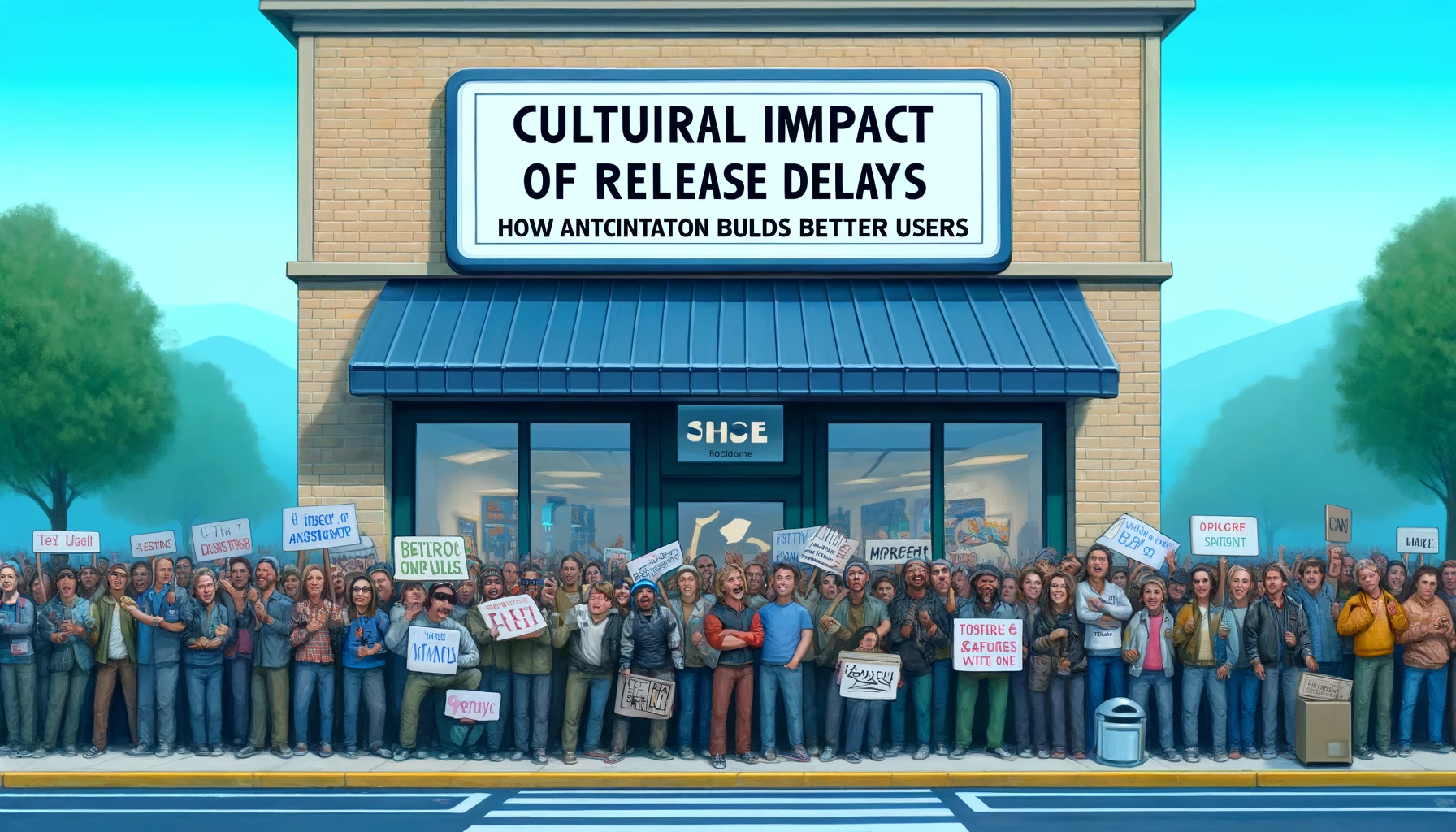This research paper explores the cultural impact of release delays in software development and how anticipation can lead to more engaged and dedicated users. By examining case studies, psychological theories, and industry practices, this paper highlights how strategic delays can enhance user experience, build stronger communities, and ultimately create more loyal customers.
Introduction
Release delays are often viewed negatively in the software industry, perceived as failures in project management. However, this paper aims to shed light on the positive cultural impacts of such delays. By fostering anticipation and excitement, delays can contribute to a more engaged and supportive user base. This paper examines the mechanisms through which anticipation builds better users and the benefits that arise from strategically managing release timelines.
Historical Context
Throughout the history of software development, release delays have been a common occurrence. From the early days of computing to modern times, users have frequently faced postponed launches. These delays, while frustrating, often lead to increased anticipation and interest in the product. Historical examples, such as the launch of Windows 95 and the release of major gaming titles, demonstrate how delays can heighten user excitement and engagement.
Psychological Theories on Anticipation
Anticipation plays a crucial role in human psychology. Theories such as the “pleasure of anticipation” suggest that the period of waiting for a desired event can enhance overall satisfaction. This concept, rooted in behavioral economics and psychology, indicates that the anticipation phase allows users to build expectations, imagine future experiences, and engage more deeply with the product. This paper explores how these psychological principles apply to software release delays.
Case Studies
To illustrate the cultural impact of release delays, we examine several case studies:
- Apple Product Launches: Apple is known for its strategic use of anticipation in product launches. Delays and teasers are used to build hype, leading to long lines and high demand on release day. This strategy not only boosts initial sales but also fosters a dedicated user community.
- Video Game Releases: The gaming industry frequently experiences delays, often resulting in heightened user anticipation. Games like “The Legend of Zelda: Breath of the Wild” saw multiple delays, but the anticipation generated contributed to its massive success and strong fan loyalty.
Building Stronger Communities
Release delays can also help build stronger user communities. When a product release is delayed, users often turn to online forums, social media, and community events to share their excitement and speculations. This communal anticipation creates a sense of belonging and shared experience, strengthening the overall user community. These communities can become powerful advocates for the product, providing valuable feedback and spreading positive word-of-mouth.
Enhancing User Engagement
Delays offer an opportunity to engage users through updates, sneak peeks, and interactive content. By keeping users informed and involved during the delay period, companies can maintain interest and build deeper connections with their audience. This engagement can lead to more active and loyal users who feel invested in the product’s success.
Strategic Management of Delays
Effectively managing release delays involves transparent communication and strategic planning. By setting realistic expectations and providing regular updates, companies can mitigate negative reactions and turn delays into positive experiences. This section outlines best practices for communicating delays and maintaining user trust and excitement.
Conclusion
While release delays are often seen as setbacks, they can have significant positive cultural impacts. By fostering anticipation, building stronger communities, and enhancing user engagement, strategically managed delays can lead to more dedicated and loyal users. Understanding the cultural dynamics of anticipation allows companies to leverage delays as opportunities for growth and user satisfaction.

